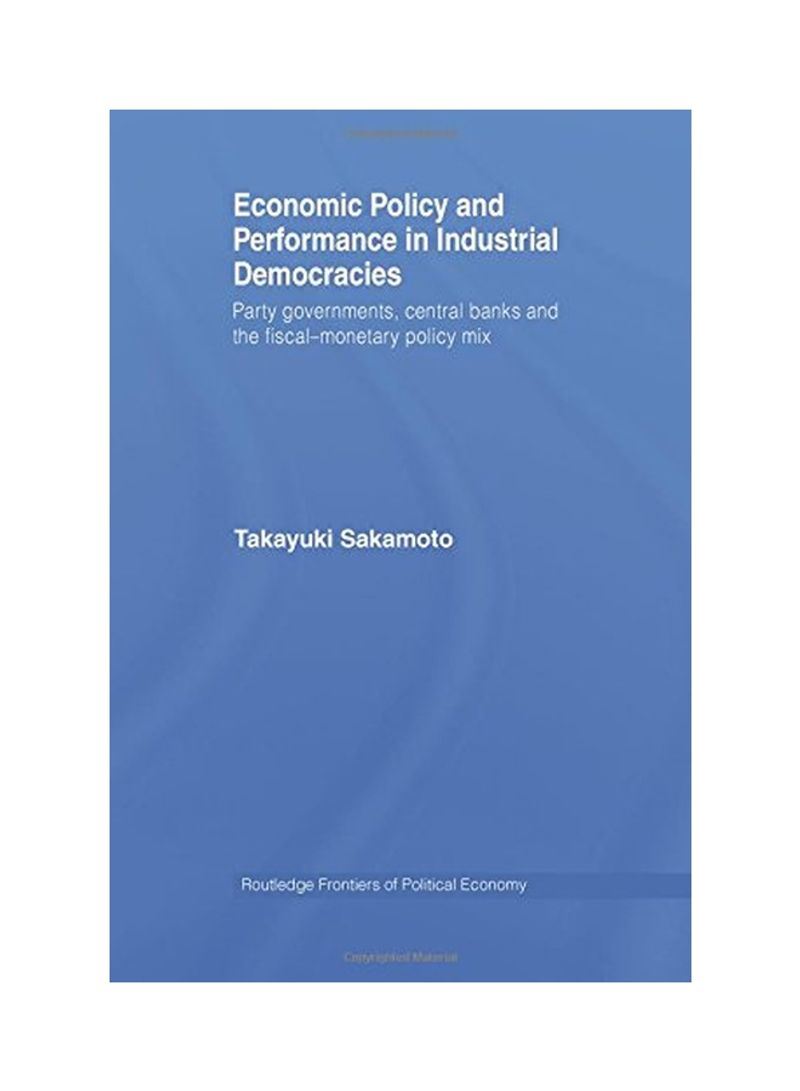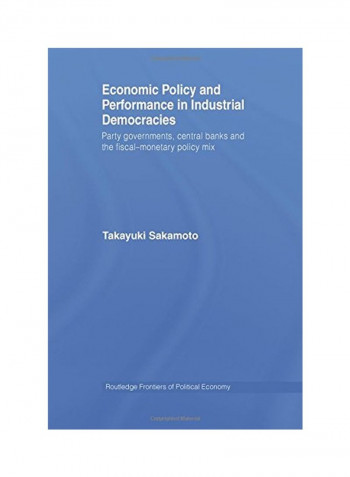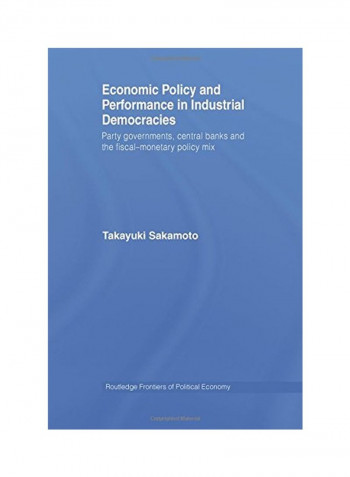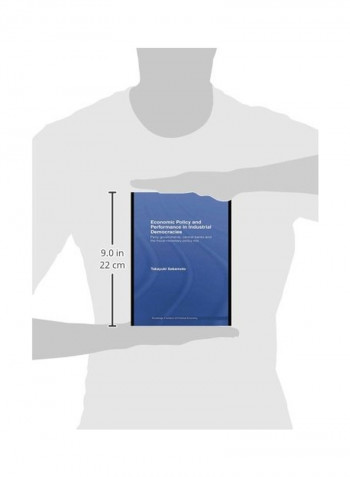Economic Policy and Performance in Industrial Democracies Paperback
Recommend
Sort by
Rating
Date
Specifications
Country of Origin
India
Author 1
Takayuki Sakamoto
Book Description
This book is the first systematic study of how the interdependence of fiscal and monetary policies and the interaction of party governments and central banks affect the fiscal-policy mix in eighteen industrial democracies in North America, Western Europe, Japan and Oceania. Sakamoto argues that central banks' influence on economic policy is far more extensive than has been conventionally believed. He demonstrates that central banks systematically affect fiscal policy that is conducted by party governments, and that independent central banks restrain the latter's fiscal policy. Sakamoto also demonstrates that the economic policy of industrial democracies did really change from the 1960s-1970s to the 1980s-1990s and became conservative as a result of the globalization of the economy and governments' response to it. But he argues that despite the neo-liberal policy shift, globalization has not diminished the role of domestic politics in economic policy.
ISBN-10
1138805386
ISBN-13
9781138805385
Language
English
Publisher
Taylor & Francis Ltd
Publication Date
27 Apr 2015
Number of Pages
368
About the Author
Takayuki Sakamoto is assistant professor of political science at Southern Methodist University (USA).
Editorial Review
This book considers the joint choice of monetary and fiscal policy by monetary and fiscal authorities, the central bank and the government, which are separate entities with differing objectives insofar as the former is independent of the latter. It considers the combination of multiple characteristics of these governments and their institutional-structural environmentsaEURO"left/right partisanship, fractionalization, labour-market organization and institutions, and election-year incentivesaEURO"in explaining these policy choices. No previous work in political science of which I am aware gives as serious and sustained attention to this political economy of the joint fiscal/monetary choices of policymakers in as richly contextualized institutional-structural environments.- Robert J. Franzese, Jr., Associate Professor of Political Science, The University of Michigan





